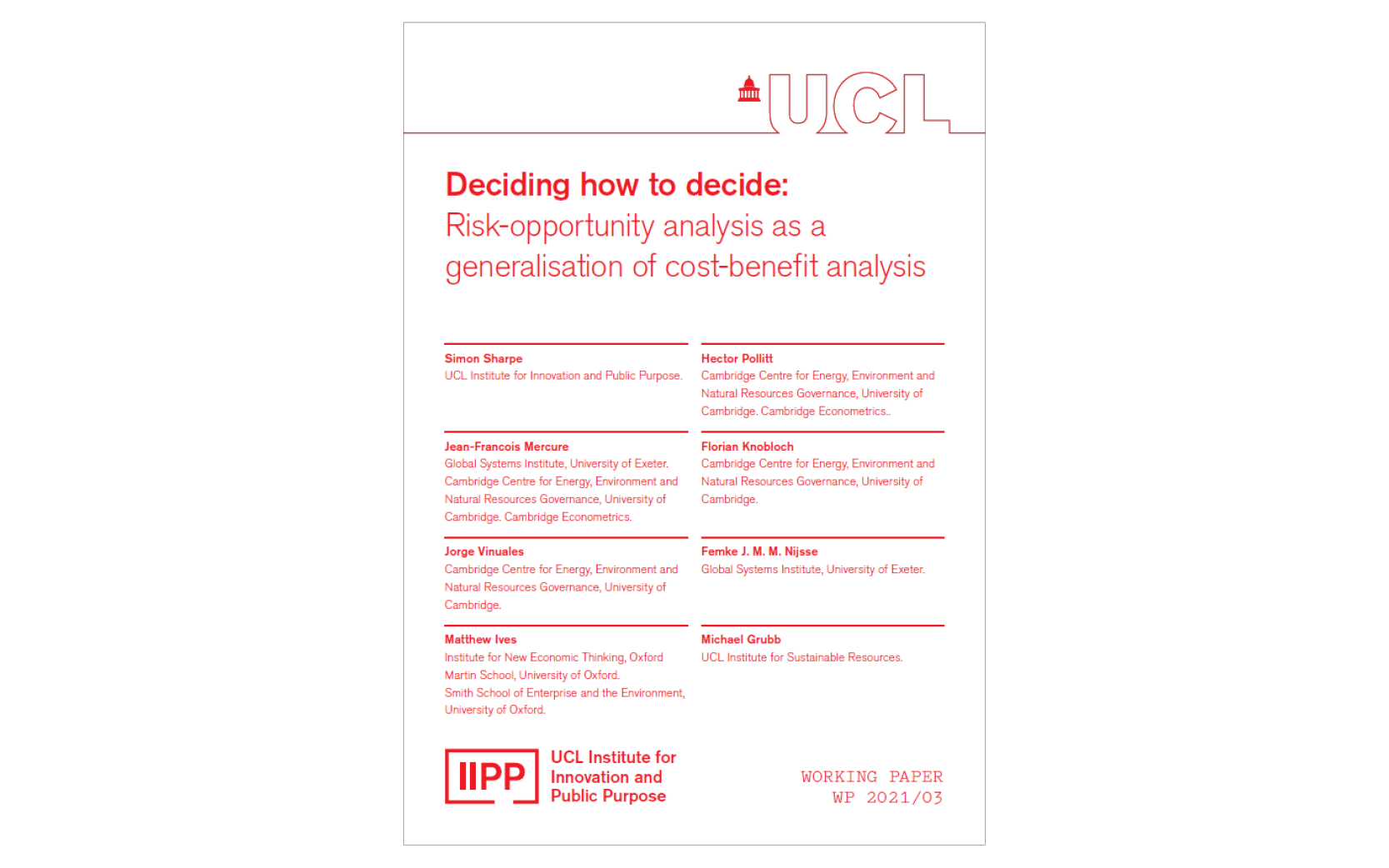Deciding how to decide: Risk-opportunity analysis as a generalisation of cost-benefit analysis

29 January 2021
UCL Institute for Innovation and Public Purpose (IIPP) Working Paper Series: IIPP WP 2021/03
Authors
- Simon Sharpe | Visiting Policy Fellow, UCL Institute for Innovation and Public Purpose
- Jean-Francois Mercure | Global Systems Institute, University of Exeter. Cambridge Centre for Energy, Environment and Natural Resources Governance, University of Cambridge. Cambridge Econometrics.
- Jorge Vinuales | Cambridge Centre for Energy, Environment and Natural Resources Governance, University of Cambridge.
- Matthew Ives | Institute for New Economic Thinking, Oxford Martin School, University of Oxford. Smith School of Enterprise and the Environment, University of Oxford.
- Hector Pollitt | Cambridge Centre for Energy, Environment and Natural Resources Governance, University of Cambridge. Cambridge Econometrics.
- Florian Knobloch | Cambridge Centre for Energy, Environment and Natural Resources Governance, University of Cambridge.
- Femke J. M. M. Nijsse | Global Systems Institute, University of Exeter.
- Michael Grubb | UCL Institute for Sustainable Resources.
Reference
Sharpe, S., Mercure, J-F., Vinuales, J., Ives, M., Grubb, M., Pollitt, H., Knobloch, F. and Nijsse, F.J.M.M. (2021). Deciding how to decide: Risk-opportunity analysis as a generalisation of cost-benefit analysis. UCL Institute for Innovation and Public Purpose, Working Paper Series (IIPP WP 2021/03). Available at: https://www.ucl.ac.uk/bartlett/public-purpose/wp2021-03
Abstract
Policymaking in the UK, the US and many other parts of the world relies heavily on cost-benefit analysis, applied within a market failure framework that rests on the theoretical foundation of welfare economics. These techniques have their roots in the so-called ‘Marginal Revolution’ of the 1870s. As the UK government’s guide to policy appraisal (the ‘Green Book’) acknowledges (section 5.5) these techniques are appropriate for informing policy in contexts of marginal change, but work less well outside those conditions. So, what should be done when the aim is to change big things quickly, or where opportunities for transformative change are available?
Concerns have been raised that applying marginal analysis techniques outside their appropriate realm may create a bias towards inaction. But finance ministries may be equally concerned that if policymakers are given free rein to label their policies as ‘transformational’ in intent, and therefore exempt from cost-benefit analysis, a bias for action may be hard to contain. The challenge, then, is to define an approach to informing policy in a broad set of conditions that has analytical rigour, demands a proportionate amount of effort, and avoids undue bias in either direction.
 Close
Close

